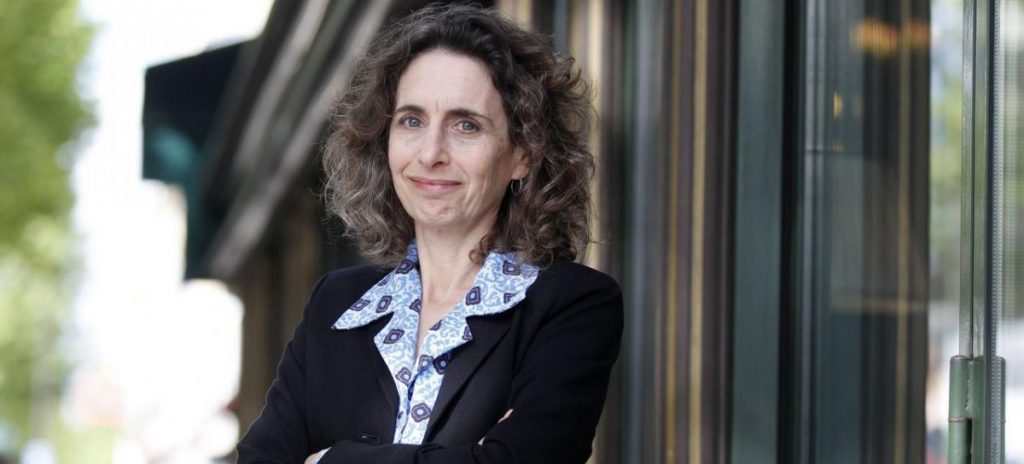SARAH VEST – STAFF WRITER

People have been hearing that the sky is falling for years, but now the Doomsday clock has ticked uncomfortably close to midnight.
And yet, the very technology that people have used to dig the planet into a hole may be the only way to pull it back out — according to Elizabeth Kolbert, the author of the Chautauqua Literary and Scientific Circle’s Week Two book Under a White Sky: The Nature of the Future.
She will be giving her joint Chautauqua Lecture Series and CLSC presentation for Week Two’s theme “New Frontiers: Exploring Today’s Unknowns” at 10:30 a.m. Tuesday, July 6 in the Amphitheater.
Sony Ton-Aime, the Michael I. Rudell Director of Literary Arts, said Kolbert “wrote the best nonfiction book of the past 10 years with The Sixth Extinction, and this book Under a White Sky is as good as The Sixth Extinction.”
This year’s CLSC theme is “The People,” which focuses the lens of events that are happening globally though the people who are experiencing them and, in the case of Under the White Sky, the people who are working to change them. According to Ton-Aime, “this book really captured the idea of the people well.”
Kolbert is a Pulitzer Prize-winning science writer and journalist. She has written two other books — The Sixth Extinction: An Unnatural History and Field Notes from a Catastrophe: Man, Nature, and Climate Change — which both began their lives as articles in The New Yorker, where Kolbert has been a staff writer since 1999. She studied literature at Yale University and was awarded a Fulbright Scholarship to study at the Universität Hamburg in Germany. Before working at The New Yorker, she was a political reporter for The New York Times.
According to Kolbert, the driving theme behind Under a White Sky is that humanity is “finding ourselves intervening in natural systems to counteract, or try to correct for, the impacts of their previous interventions.”
Her book is written in a series of anecdotes that span from Chicago to Geelong, Australia. They cover topics ranging from editing the genes of Cane toad using CRISPR (clustered regularly interspaced short palindromic repeats) to injecting CO2-infused water into lava rock in order to quickly mineralize the CO2 and keep it out of the atmosphere.
In her presentation, Kolbert will feature a story about the Chicago River, which had its flow reversed in the 1900s and has since been electrified in an effort to keep Asian carp, a subset of invasive species with no predators, out of Lake Michigan.
“It is a very, very vivid example of the pattern that I’m talking about,” Kolbert said — that of intervention and then reintervention when the first one inevitably creates more problems than solutions.
Her book paints a bleak picture of the planet’s future, but she said that is part of the reason she wrote it in the first place.
I think understanding things does have a certain calming effect, even if what you’re understanding is pretty grim or bleak or scary,” Kolbert said.
Despite the fact that the message she is delivering to her readers could be anxiety-inducing, she hopes that the vessel with which she delivers the message will soften the blow.
“A lot of it is alarming, but it’s sort of a dark comedy,” said Kolbert, who is a recipient of the Heinz Award. “It’s sort of written, weirdly enough, to be a fun read.”
What Kolbert really wants people to get out of her lecture is that we live in an “unprecedented moment.” The ways people are changing the world might seem normal now, but the measures that will need to be taken in the future are unprecedented, and will require the kinds of decisions that cannot be made lightly.
It boils down to a debate between what society — which is a term Kolbert labels “broad” — is able to do with science and the technological advances that are coming down the pipeline, and if we should actually utilize them.
“We should have structures in place where these decisions get made in a way that’s both sensible … and equitable,” Kolbert said, “and that’s a lot easier said than done.”




